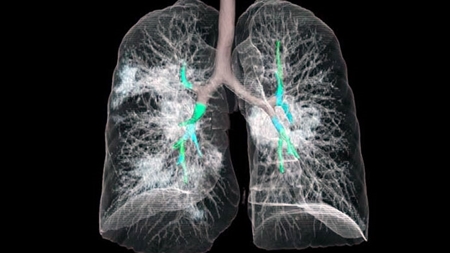“The IMED Smart System of COVID-19 Diagnosis” Will Be Globalized
“The IMED Smart System of COVID-19 Diagnosis” Will Be Globalized

Artificial intelligence is one of the technologies that has been extensively used due to the outbreak of corona. China was the first country to use the method in order to accelerate the pace of corona diagnosis. Applying the same method, Iran seeks to accelerate corona treatment and diagnosis process, aiming to present the method to healthcare centers of the world free of charge with the cooperation of the Mustafa Prize.
One of the best methods to diagnose corona is using chest x-rays by a specialist. Hamidrezah Rabiei, the head of the information and technology group of the Mustafa Prize, mentioned: there are several ways to diagnose COVID-19, one of the most definitive of which is to use CT scans and chest x-rays, which have been used several times in line with the application of artificial intelligence to help diagnose the disease.
Rabiei continued: Chinese and American systems are active with an accuracy of more than 90%. The IMED system designed in Iran has a sensitivity of more than 97%. The system, designed with innovation in image processing in deeply described networks, has been able to provide good, accurate results in less than a minute.
Pointing out that COVID-19 cannot be observed in the early images of patients, Rabiei marked: there have been samples from different hospitals that could not be detected. However, the IMED smart system has been able to diagnose the disease in early stages.
He also mentioned: the system is managed in cooperation with Hossein Ghena’ati, a radiology professor at Tehran University of Medical Sciences, IMED research group and cooperation of universities of Tehran, Iran, Isfahan, and Kerman. In addition, Tehran radiology center and Baqiyatallah Hospital have provided valuable images to design the system.
Pointing out requests to use the product from countries such as Canada, Romania, and Indonesia, he affirmed: using medical systems requires a series of legal and ethical considerations, which have been established in the last week and will be soon delivered to applicants.
The system designed by our research team can be installed on diPacs, desktop and web systems. All three solutions are available and will be installed in hospitals of Yazd, Qom, Qazvin and Tehran.
The head of the information and technology group of the Mustafa Prize affirmed: one of the important issues in expanding cooperation with Islamic countries is communication. The Mustafa Prize can establish good relations with an extensive network. We welcome this and hope that the system could be provided to Islamic countries as soon as possible.
Definitely, the system would not be possible without the presence of radiologists and specialists of the country. We hope that the system can be used as a smart assistant across the world. For more information, please refer to http://aimed-sharif.ir.
A report by the public relations and information center of the Vice-Presidency for science and technology affairs
comment